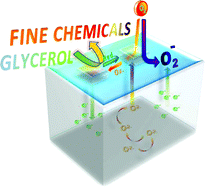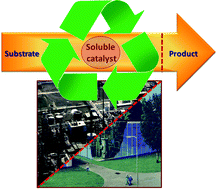| Selective catalytic oxidation of glycerol – perspectives for high value chemicals. The increasing worldwide production of biodiesel has led to an excess supply of crude glycerol, prompting researchers to investigate its valorisation. Thanks to its three hydroxyl groups, glycerol is a potential starting material for several high-value fine chemicals. Various metals can catalyse glycerol oxidation. However, the selectively of these reactions is dependent on the active phase, metal particle size, pore size of the support and pH of the reaction medium. In this review, Dumeignil and co-workers look at the recent developments in new catalysts and spotlight the role of reaction conditions. (Green Chem., 2011, DOI: 10.1039/c1gc15320j) |
 |












